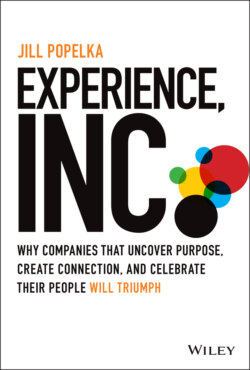Читать книгу Experience, Inc. - Jill Popelka - Страница 9
CHAPTER 1 A Brief, Not Particularly Employee-Friendly History of Work
ОглавлениеConsider the employee experience over the last 3,000 years.
History tells us it was harsh, usually brutal. It was tedious. Workers, including children, were often exploited or far worse. Conditions could be unbearable, with few if any safety precautions. Laborers were often unappreciated for their efforts. It was called work for a reason.
For thousands of years we worked from dawn until dusk. Rulers or wealthy employers established pay and taxes and could change them on a whim. You decided how much risk you would accept for the advertised reward but, for most, it was no choice at all.
During the Industrial Revolution, workers experienced a huge shift from primarily agrarian labor and the creation of hand-crafted goods to mass manufacturing, enabled by technology. People moved to cities, where growth and industry offered more reliable jobs, albeit with similarly terrible conditions. Some governments and newly formed labor unions fought to improve worker health and safety, but struggled to keep up with the dizzying pace of change. Mass production and assembly lines generated an economic boon. Though responsibilities changed, workers still faced monotonous and tiresome tasks. Your job wasn't to be happy at work; it was to do your work.
Work, and our relationship to it, has continued to evolve. Over the last 50 years, many jobs moved from the production of goods to the delivery of services. The number of professional and technical workers increased dramatically. With the rise of the knowledge worker, alongside sweeping advances in telecommunications and the emergence of the internet, work was no longer inextricably linked to a specific workplace. Once without choice, workers began to enjoy agency for the first time.
We've come a long way.
